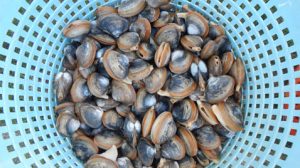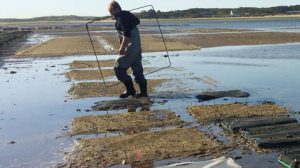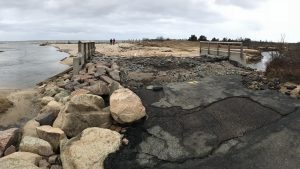Search results for: Canadian Online Pharmacy ⭐ www.HealthMeds.online ⭐ How To Get Viagra In Canada - Viagra Mg Canada
Bay State Aquaculture Projects Get Green Light from National Sea Grant Program
Two new grants to the Woods Hole Sea Grant program totaling more than $650,000 will support research aimed at expanding aquaculture production in Massachusetts. The projects won funding as part of a national strategic investment in aquaculture by the NOAA Sea Grant Program. “The United States is one of the world’s leading seafood consumers, yet…
Read MoreSea Grant Two if by Sea Vol. 9 No. 1 A joint n
Sea Grant Two if by Sea Vol. 9 No. 1 A joint n
Read MoreKnauss Fellow Profile: Katie Sperry
Hometown: Northampton, Massachusetts Area of research focus/interest: Restoration ecology of coastal habitats What are you doing during your Knauss Fellowship? I’m placed in NOAA Fisheries’ Office of Habitat Conservation’s Restoration Center (RC) for my Knauss Fellowship. Here, I get to see how ecosystem restoration is coordinated and funded at a federal level. Critically, the RC’s…
Read MoreStudy Provides Measurement of Nitrogen Removal by Local Shellfish
Towns along Cape Cod and the Islands are looking to shellfish not only as tasty culinary treats, but also for help cleaning up waters degraded by excess nitrogen in the region. While nitrogen is essential for all plants and animals, too much nitrogen in ponds and waterways—often caused by fertilizer runoff and septic tanks—can fuel…
Read MoreCape Cod Coastal Resilience Week
BE PREPARED. BE FLEXIBLE. BE STRONG. JUNE 8 – JUNE 15, 2024 Communities across Cape Cod are improving their readiness to weather natural disasters and environmental change. Our ability to withstand and “bounce back” after events such as hurricanes, coastal storms, and flooding is called coastal resilience. Preserving dunes is a primary defense against…
Read MoreApril 2021 Coastal Impacts Newsletter
Coastal Impacts Woods Hole Sea Grant Newsletter APRIL 2021 CONTENTS Letter from the Director Partnership Invests $1M+ into Research on the Co-existence of Ocean Energy with Fishing and Coastal Communities Popular NOAA Live! Series Continues through June 9 Summer Program Trains the Next Generation of Women Scientists Getting Local Seafood to Those in Need…
Read MoreDGGE-based Detection Method for Quahog Parasite Unknown (QPX)
DGGE-based Detection Method for Quahog Parasite Unknown (QPX) Gast, R.J., E. Cushman, D.M. Moran, K.R. Uhlinger, D. Leavitt, and R. Smolowitz Diseases of Aquatic Organisms, Vol. 70, pp. 115-122, 2006 WHOI-R-06-003
Read MoreClam Tents: A New Approach to Soft-Shell Clam Culture and Management
Clam Tents: A New Approach to Soft-Shell Clam Culture and Management Helpful to educators and students Leavitt, D.F. Marine Extension Bulletin, 4 pp., 1998 WHOI-G-98-006 Also available online: click here
Read MoreBulletin: Beach and Dune Profiles: An Educational Tool for Observing and Comparing Dynamic Coastal Environments
Bulletin: Beach and Dune Profiles: An Educational Tool for Observing and Comparing Dynamic Coastal Environments Beaches and dunes are in constant motion, continually changing shape and shifting position in response to winds, waves, tides, relative sea level, and human activities. The most significant changes occur seasonally and following storms.
Read MoreBulletin: Clam Tents: A New Approach to Soft-Shell Clam Culture and Management
Bulletin: Clam Tents: A New Approach to Soft-Shell Clam Culture and Management Soft-shell clams, Mya arenaria, are an enigma to scientists, managers, and shellfish harvesters in southeastern Massachusetts and throughout the bivalve’s range. One year, clams may settle in very dense concentrations, while, the following year, there may be no soft-shell clam recruitment at the…
Read More



